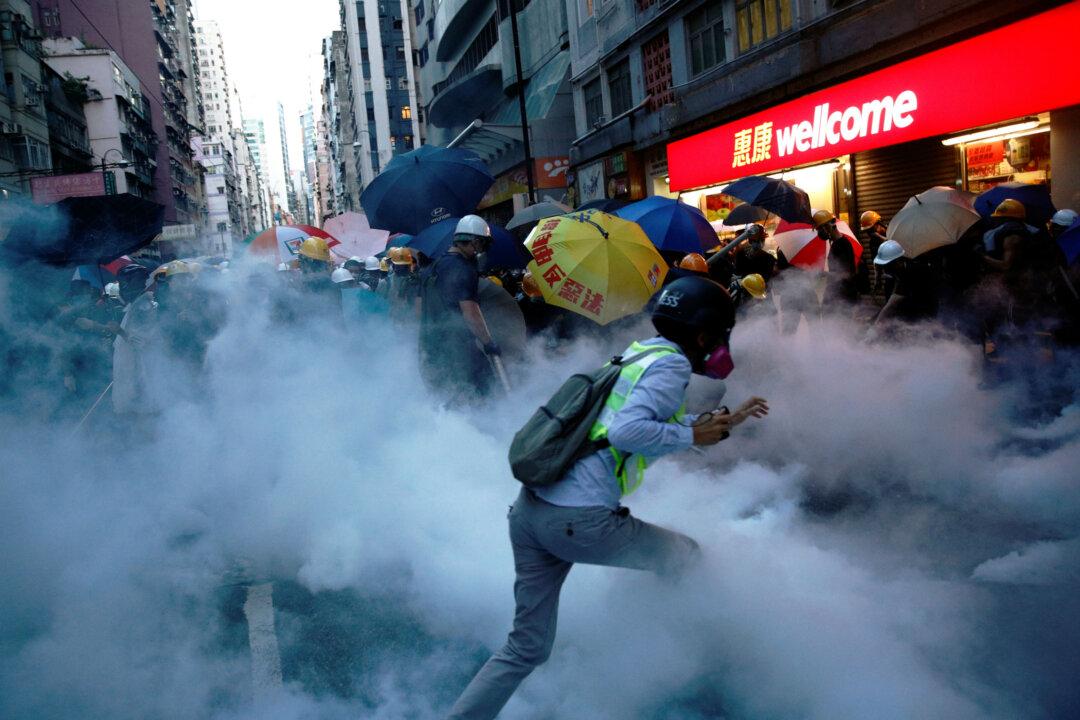Two U.S. lawmakers have joined international calls to suspend exports of crowd control equipment including tear gas to Hong Kong, where police have been accused of using excessive force to quell ongoing protests against Beijing’s tightening grip on the city.
Protests over a controversial extradition bill have escalated in recent weeks, compounded by public anger following the police’s delayed response to a violent mob attack inside a metro station on July 21.





